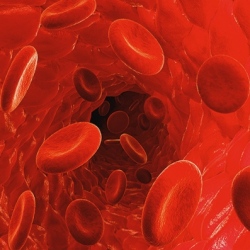
One of the problems with heart attacks is that when the heart heals afterwards, it grows scar tissue over the part of the heart that was damaged. That scar tissue never does become beating heart tissue, so it leaves the heart compromised for the rest of the patient’s life. There may be hope as scientists have created a patch that allows the heart to heal more completely.
First of all, yes, this has been done before. We have already seen experimental "heart patches" from places like the University of Tel Aviv, Brown University and MIT, which allow the heart to heal with a minimum of scar tissue growth.
One of the things that makes this latest patch unique is the fact that it’s 3D-bioprinted out of structural proteins native to the heart. It takes the form of a scaffolding-like matrix, which is subsequently seeded with cardiac cells derived from stem cells. The result is a patch of material, similar in structure and material to heart tissue, containing actual functioning heart cells – as opposed to inert scar tissue.
In lab tests, one of the patches was placed on the heart of a mouse that had suffered a simulated heart attack. Within just four weeks, the scientists noted a "significant increase in functional capacity." The patch was ultimately absorbed by the body, so no additional surgeries were required to remove it after its job was done.
"We were quite surprised by how well it worked given the complexity of the heart," says associate professor Brenda Ogle, who is leading the research. "We were encouraged to see that the cells had aligned in the scaffold and showed a continuous wave of electrical signal that moved across the patch."
A larger patch is now in the works, which will be tested on a pig heart.
Other institutions involved in the study include the University of Wisconsin-Madison and University of Alabama-Birmingham. A paper on the research was recently published in the journal Circulation Research.
